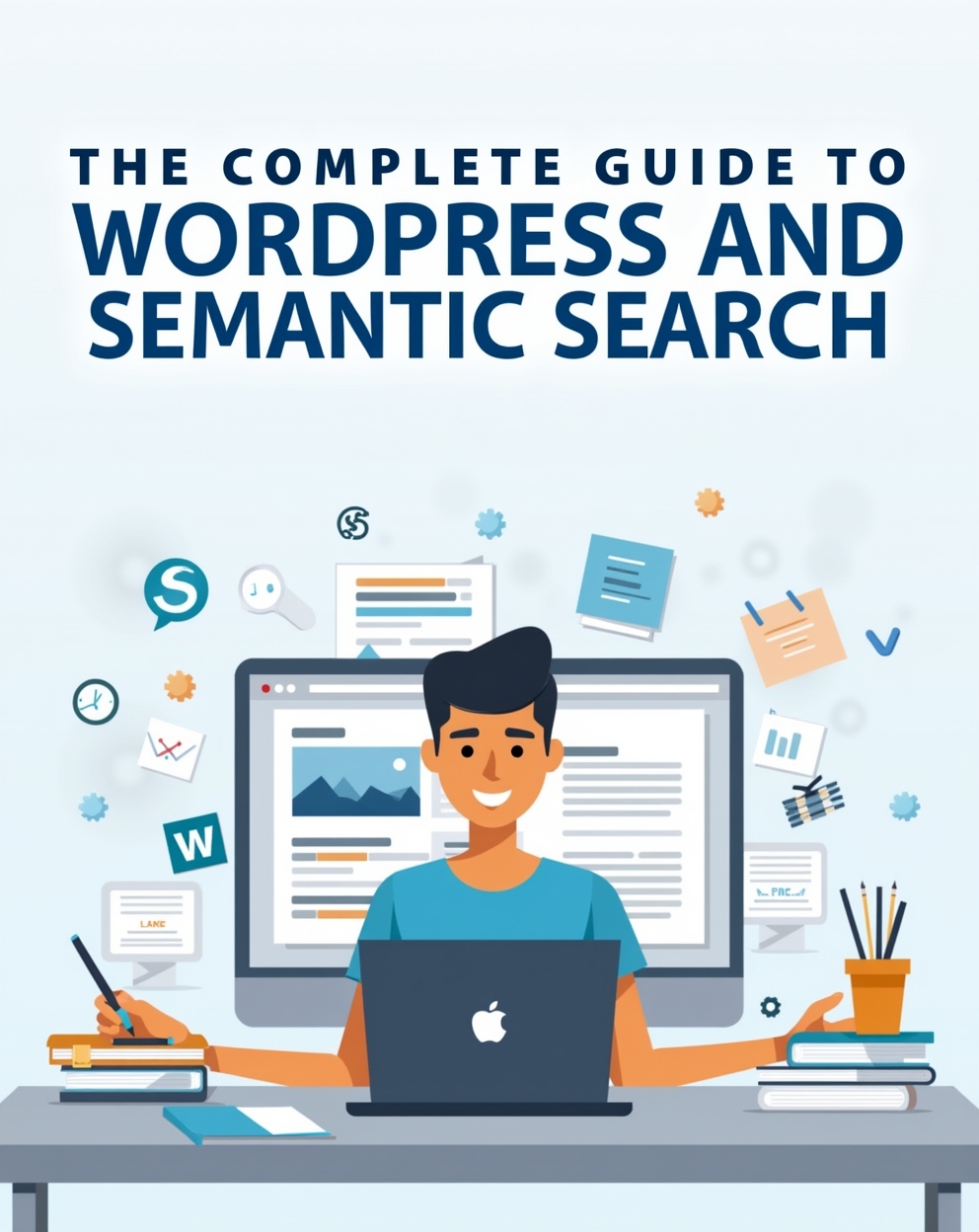The Complete Guide to WordPress and Semantic Search: Building Smarter, Context-Aware Websites
Introduction to Semantic Search in WordPress
Traditional keyword-based search is becoming obsolete. Modern users expect Google-like understanding of their intent – this is where semantic search transforms WordPress sites. Unlike basic search that matches literal keywords, semantic search understands:
- User intent (“best budget camera” vs “cheap DSLR”)
- Contextual relationships (knowing “Apple” refers to the tech company in a gadget blog)
- Synonyms and natural language queries
For WordPress sites, implementing semantic search means:
✅ 50%+ reduction in “no results found” searches
✅ 30-40% improvement in content discovery
✅ Better engagement through personalized results
Why WordPress Needs Semantic Search
1. The Limitations of Default WordPress Search
- Only matches exact keywords
- No understanding of synonyms (e.g., “cell phone” vs “mobile phone”)
- Poor handling of misspellings
- Zero personalization based on user behavior. Our YouTube channel; https://www.youtube.com/@easythemestore
2. How Semantic Search Works
Semantic search leverages:
- Natural Language Processing (NLP) to understand queries
- Knowledge graphs to map content relationships
- Machine learning to improve over time
3. Business Benefits
- Increased conversions (users find what they need faster)
- Reduced bounce rates
- Competitive SEO advantage (Google favors sites with good UX)
Implementing Semantic Search in WordPress
Method 1: Plugins for Immediate Results
1. WordLift
- Creates knowledge graphs of your content
- Automatically links related concepts
- Adds schema.org structured data
2. SearchWP
- Synonyms and stemming support
- Learns from user searches
- Integrates with WooCommerce
3. Relevanssi
- Fuzzy matching for misspellings
- Content weighting controls
- PDF/attachment search
Method 2: Custom Implementation (For Developers)
Step 1: Choose Your AI Backend
Options:
- Elasticsearch with NLP plugin
- Google Cloud Natural Language API
- OpenAI Embeddings
Step 2: Index Your Content
// Sample code to create semantic index function create_semantic_index() { $posts = get_posts(['numberposts' => -1]); foreach ($posts as $post) { $embeddings = get_openai_embeddings($post->post_content); update_post_meta($post->ID, 'semantic_vectors', $embeddings); } }
Step 3: Build the Search Interface
// Frontend AJAX search with semantic matching jQuery('#search-input').on('input', function() { let query = jQuery(this).val(); jQuery.ajax({ url: '/wp-json/semantic-search/v1/search', data: {query: query}, success: function(results) { // Display contextual results } }); });
Method 3: Hybrid Approach
Combine plugins with custom solutions:
- Use WordLift for entity recognition
- Add Elasticsearch for scalable search
- Implement personalization via user behavior tracking
Advanced Techniques
1. Personalization Layers
- Track user behavior to weight results
- Example: Frequent blog readers get more article suggestions
2. Voice Search Optimization
- Implement conversational query understanding
- Support for “near me” and question-style searches
3. E-Commerce Applications
- “Show me blue shirts under $50” actually works
- Visual search integration (find similar products)
Case Study: E-Commerce Implementation
Problem:
60% product searches returned no results due to keyword mismatch
Solution:
- Implemented WordLift + Elasticsearch
- Added synonym support (e.g., “sneakers” = “athletic shoes”)
- Enabled attribute search (color, size, price range)
Results:
- 45% increase in search conversions
- 30% reduction in support queries
- 20% boost in average order value
Future of Semantic Search in WordPress
- Multimodal Search (text + image + voice)
- Predictive Search (anticipating user needs)
- Self-Learning Algorithms that improve autonomously
Conclusion
Semantic search represents the next evolution of WordPress functionality. By implementing these strategies:
- Small blogs can punch above their weight with Google-like search
- E-commerce sites reduce abandoned searches
- Membership sites deliver personalized experiences
Ready to upgrade your WordPress search? Start with WordLift for an easy entry point, or explore custom Elasticsearch implementations for large-scale sites. The future of search is semantic – is your WordPress site ready?


